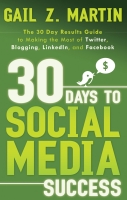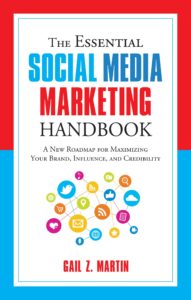You’ve created an online presence for yourself via your Web site, Facebook and LinkedIn pages, blog, Twitter feed and other Internet activity. This presence becomes part of your personal and professional branding, which is why it’s so important that everything you post online is consistent with the professional image you want to project. Yet at the same time, other people are free to tag you in photos, mention you in their blogs and Facebook posts, refer to your company and products in articles and reviews, or re-tweet your Twitter content. You control what you post yourself, but how can you possibly track everything posted by others, including people you’ve never met?
Google Alerts is a first line of defense. It’s a free tool that enables you to track keywords any time they show up on the Internet, and those keywords should include your name, company name and product names. Any time your keywords are used, Google Alerts sends you a report which includes a link so you can see for yourself. It’s not perfect; I’ve found it to work well for content on blogs and Web sites and less so for content on Facebook and other social media sites, but it still snags a tremendous amount of information and is useful as a basic reputation management tool.
SocialMention.com is also valuable as a reputation management tool. Social Mention fills the holes left by Google Alerts by focusing specifically on social media, and covers an impressive variety of site types. While no program will capture everything, Google Alerts and Social Mention used together should give you a very comprehensive picture of what the market is saying about you (and how much they’re talking about you).
If you’ve been online very long, you’ve discovered that lots of people have a name that is the same or very similar to yours (and perhaps to your company or products). One way inaccurate information finds its way into the Internet data stream is via mistaken or confused identity. Most of the time, these mistakes are honestly made, and can be cleared up with an email or a clarifying post. If you find that you’re frequently being confused with a particular person or company, you may want to add a note in your Frequently Asked Questions (FAQ) stating who you’re not.
People in the public eye (which includes prominent business people as well as writers, speakers, and educators) may sometimes be the victim of pranksters who set up unauthorized sites to detour legitimate Web traffic, make a negative statement, or just cause havoc. This is especially easy to do in social media, and the result can be a site purporting to be written by you that is making statements you would never make, statements that could be damaging to your brand and reputation.
One way to assure that people are finding the real you is to use a site like Zoolit.com provides a landing page that shares all your sites: social media, Web sites, blogs, etc. Using a landing page like Zoolit enables you to give readers a way to verify whether or not a site that purports to be from you is really yours.
Excerpted from 30 Days to Virtual Productivity Success by Gail Z. Martin







